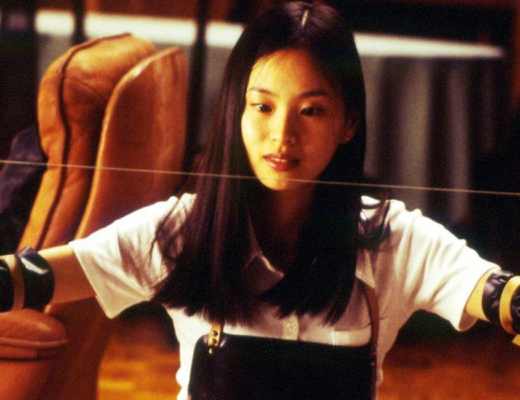It’s been 20 years since game-changer The Blair Witch Project hit cinemas, and yet the found-footage horror sub-genre is going strong. Just last year, both the well-regarded horror sequel Unfriended: Dark Web and the missing-persons thriller Searching pulled off novel formal feats, weaving together action from webcams, video files, and CCTV systems to conjure deliciously clever spins on found-footage concepts. By contrast, Andrew Schuth’s I See You is an endlessly tawdry and entirely uncreative iteration of this specific brand of scary movie. It begins with the purchase of a video camera at a yard sale, and then quickly shifts its diegesis to footage recorded on said camera, ten years earlier — footage of a video blogger named Steve (Aaron Perilo), who documents his mundane life while the people around him are gruesomely murdered by an unknown assailant. Throughout, I See You requires the viewer to allay a certain amount of skepticism for the sake of entertainment, like most found-footage films — yet even by the standards of its contemporaries, this film stretches its logic to seriously dubious ends. Schuth simply doesn’t provide much justification for how the recording of certain scenes became necessary, or permissible — and so I See You asks us to just accept on faith that a boss would conduct a performance review within listening distance of his employees, and that a commercial strip club would be perfectly OK with patrons shooting close-ups of its dancers.
While the film is also actively critical of hypermasculinity, its lack of interest in providing any kind of female perspective makes those intentions feel disingenuous.
More problematic in I See You is Schuth’s representation of women: they are constantly sexualized, exhibit no discerning personalities, and are all eventually rendered helpless victims. Given that the majority of the violence is perpetrated towards these characters, I See You can feel quite distasteful; and while the film is also actively critical of hypermasculinity, its lack of interest in providing any kind of female perspective makes those intentions feel disingenuous. Similarly, while Shuth frames his film as a kind of whodunit, he seems more interested in delivering a comment on the narcissism of criminals who document, and create ‘artifacts,’ of their crimes, particularly in the tech-friendly era of the 21st century. The director maintains some level of suspense as to the identity of the killer, and as to their motive, but his orchestration of the murders themselves is chaotic and mindless, compounded by frantic editing which telegraphs Shuth’s own lack of faith in an audience’s attention span. A twist in the denouement actually veers towards the thought-provoking politics of Oliver Stone’s Natural Born Killers, linking psychosis with legacy-seeking and celebrity, but by then, it’s hard to muster much enthusiasm. For too long, I See You squanders opportunities to expand on its concept and lacks the sort of creative ingenuity required for us to remotely invest in its grisly, misbegotten spectacle.
You can currently stream Andrew Schuth’s I See You on Amazon Prime.







